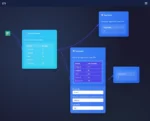Businesses are continuously harnessing technologies like machine learning to drive informed decisions, optimize performance, and fuel innovation. However, transitioning machine learning models from a research environment into robust production systems is a strategic leap requiring precise planning, intelligent architecture, and careful management. Drawing upon extensive experience in data analytics and software innovation, we’ve designed a roadmap to help organizations confidently master the journey. Let’s explore essential strategies, powerful best practices, and intelligent technical decisions needed to successfully design a machine learning pipeline that’s production-ready, scalable, and sustainable.
Understanding the Importance of a Production-Ready Pipeline
Before diving into the specifics of machine learning pipeline construction, let’s examine its strategic importance. When adopting machine learning technologies, one crucial step is to transition from the ad-hoc, exploratory phase to a robust pipeline designed to function reliably in a production landscape. A well-designed pipeline not only streamlines model development, testing, and deployment, but also ensures reliability and scalability, essential for practical business solutions.
In research environments, machine learning models commonly exist in isolated, experimental setups. But deploying these models into a production environment is a different challenge altogether, involving consideration of performance at scale, resource planning, and continuous monitoring. By implementing a well-structured production pipeline, teams can systematically control data quality, improve model tracking, facilitate retraining, and mitigate deployment risks. Such pipelines prepare businesses for rapid iterations, competitive innovation, and enhanced decision-making.
To better comprehend the intricacies of data interactions within these pipelines, businesses must often integrate diverse data management systems. Consider reviewing our insights into MySQL consulting services, where we explain how organizations optimize databases for robust, production-grade data projects.
Key Components of a Robust Machine Learning Pipeline
A robust machine learning pipeline comprises distinct stages, each playing a critical role in maximizing the value gained from machine learning investments. Generally, these stages include data ingestion and processing, feature engineering, model training, evaluation, deployment, and monitoring.
Data Ingestion & Processing
The earlier phases of the pipeline deal with collecting and preparing data. Raw data must undergo thorough pre-processing steps—cleaning, filtering, and integrating from various sources—to achieve reliable results. Effective management at this stage involves strategic usage of relational data systems and optimized SQL practices, such as our guide to modifying the structure of existing tables in SQL. Data validity, timeliness, accuracy, and relevance directly influence the subsequent feature extraction process and ultimately model accuracy.
Feature Engineering
The production pipeline’s feature engineering step converts processed data into a structured format suitable for machine learning algorithms. This stage is critical as feature selection and extraction directly impact model performance. Intelligent feature engineering involves sophisticated data analytical practices, from dimensionality reduction techniques to natural language processing and sentiment analysis. If you’re interested in understanding feature engineering in more detail, we invite you to explore our comprehensive tutorial on implementing sentiment analysis using Python’s NLTK library.
These fundamental processes transform data complexity into simple forms, greatly enhancing the efficacy of predictive modeling. Effective feature engineering will help your machine learning models achieve better accuracy, interpretability, and predictability—essential criteria for deploying enterprise-grade solutions.
Choosing the Right Tools and Technologies
Building an effective machine learning pipeline requires picking intelligent combinations of tools and frameworks. Choices range from powerful data visualization and BI tools to robust programming frameworks, cloud platforms, and specialized libraries. Your selections should facilitate smooth collaboration, automate repetitive tasks, and support scalability.
Commonly used programming languages such as Python and JavaScript (particularly its Node.js runtime) offer unparalleled flexibility and integration potential essential for enterprise pipelines. If your team needs to advance your data engineering capabilities, you’ll find our discussion on embracing Node.js data engineering for businesses highly relevant.
In production environments, companies frequently leverage scalable, distributed ecosystems, powerful cloud-computing infrastructures, and effective big data technologies. Identifying the appropriate data analytics stack and combinations of platforms is critical—explore our detailed guide on tools and technologies used for data analytics and machine learning. Adopting scalable cloud solutions, streamlining data science operations with Docker and Kubernetes, or leveraging the Anaconda toolkit to simplify dependencies (refer to our guide on setting up Anaconda3 as a data science toolkit) are effective strategies for managing complicated production environments.
Continuous Integration and Continuous Delivery (CI/CD) Implementation
A successful machine learning pipeline doesn’t just create ML models—it smoothly integrates these models into software development workflows. Leveraging continuous integration and continuous delivery (CI/CD) practices ensures consistency, flexibility, and quality of machine learning solutions deployed into production environments.
CI/CD practices help automate the building, integrating, testing, and deploying of machine learning models. Incorporating tools like GitHub Actions, Jenkins, or GitLab CI ensures that the updated models consistently pass rigorous evaluations before being deployed. Tools and frameworks that seamlessly integrate model versioning allow you to avoid pitfalls of manual update processes, improving accountability and reducing errors in enterprise settings.
Dev3lop LLC, specialists in analytics processes, recently unveiled our enhanced web portal, explicitly designed to support businesses exploring implementation of robust data-driven pipelines. If you missed that update, you can review our announcement about our revised website launch advancing business intelligence adoption.
Monitoring, Maintenance, and Scalability in Production Pipelines
Designing for production entails extensive coverage beyond the initial deployment. It’s about consistently monitoring operational performance, diagnosing deviations, maintaining security and compliance, and ensuring availability and scalability.
Monitoring the machine learning pipeline is about capturing insights and logging data on the model’s performance, accuracy trends, latency, and potential drifts. Accurate monitoring alerts decision-makers on when retraining or recalibration becomes necessary. Incorporating powerful analytical dashboards with visualizations can make these insights approachable across your team and company stakeholders at large.
Moreover, model maintenance in production environments means routinely scheduled updates and retraining cycles that allow your models to adjust to changing real-world data. Scalability is a final critical factor. Considering elasticity early in design ensures that growth in infrastructure, data volumes, or usage demands can be adapted to without significant retrofitting.
Conclusion: Optimizing Your Pipeline Strategy for Long-Term Success
Successfully transitioning machine learning models from development into live, scalable solutions isn’t simply a technical challenge but a strategic imperative. Organizations need deliberate planning, experienced partners, powerful technologies, and a determined embrace of industry-leading practices. Building a machine learning pipeline with production-readiness in mind prepares your company not just for immediate needs but for long-term, innovative growth.
With proven expertise in data analytics, software consulting, innovation, and business intelligence strategies, Dev3lop LLC is prepared and eager to assist your organization in adopting world-class practices and enhance your machine learning initiatives today. Whether your team is starting from conceptual stages or optimizing existing systems, focusing on expert-driven pipeline design empowers you with a competitive advantage.
Ready to transform data-driven insights into powerful business outcomes? Reach out and let’s collaborate on creating a coffee-proof strategy custom-tailored to ensure lasting success.

























